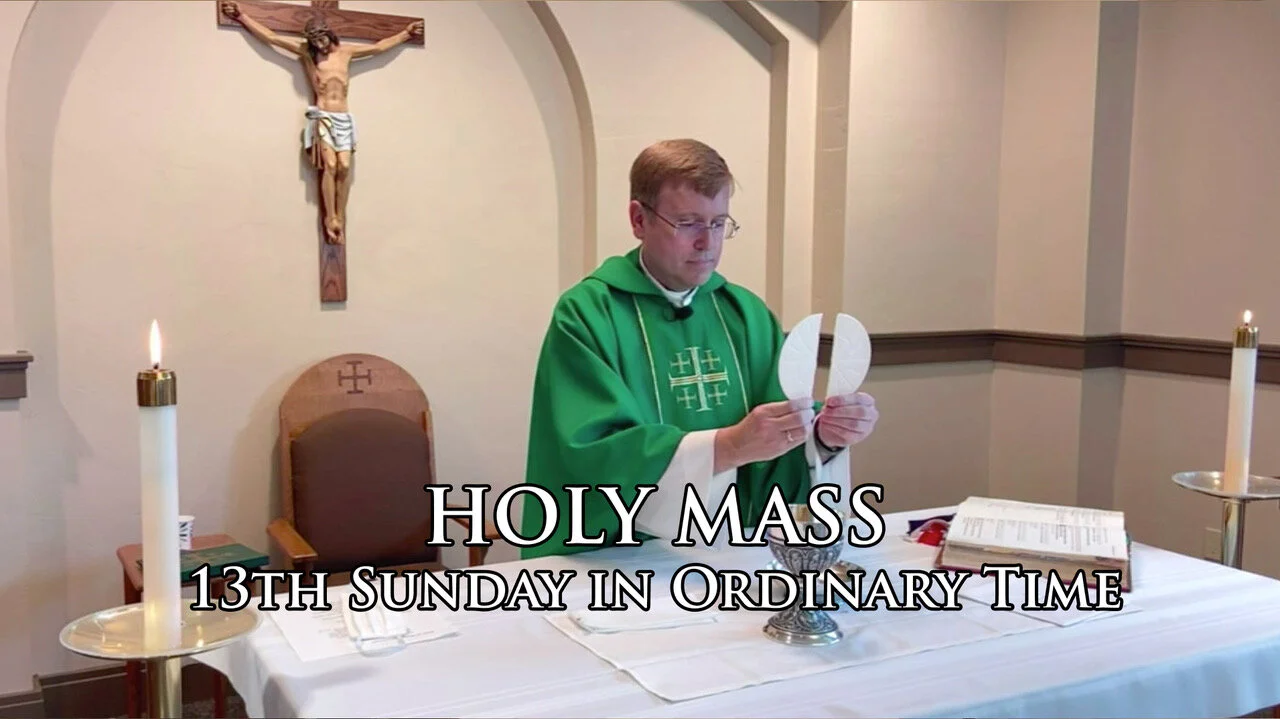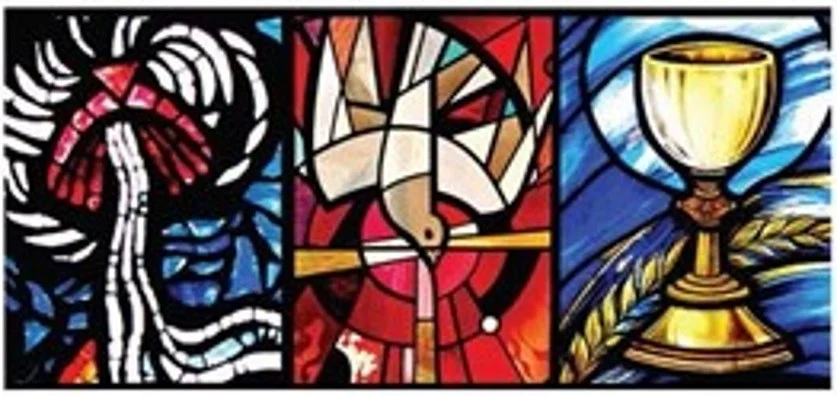Dear Parishioners,
Beginning last week, the Universal Church’s liturgical calendar celebrated the 17th Sunday in Ordinary time (although St. Anne was able to transfer the feast of her patron to the same day). It began a several week reading of what is called “The Bread of Life Discourse” from the sixth chapter of John which began with the miracle of the Multiplication of the Loaves and Fish. It concludes with Jesus’ teaching about how he is the “Bread of Life” and that we must eat his flesh and drink his blood so that we might have life within us.
While the Gospel of John did not include the “Institution Narrative” at the Last Supper, as did the Synoptic Gospels (Matthew, Mark, and Luke), John recounted Jesus’ first remarks and teachings about the Eucharist which preceded the Last Supper. It is only in the Gospel of John where we read Jesus implore with great passion that he would not only give his flesh and blood for us (think Crucifixion) but also that his followers were to eat his flesh and blood. Those who heard Jesus teach this had mixed reactions. For the common Jew of the day, it would have been reasonable to find his words off-putting and repugnant. Towards the end of the discourse, we find that many disciples left him to return to their former ways of life. Turning to Peter, Jesus asked if he will leave too. Peter responded, “Master, to whom shall we go? You have the words of eternal life. We have come to believe and are convinced that you are the Holy One of God” (Jn 6:68-69).
If we take Jesus seriously, (and we do), it would seem to me, compelled to make one of two choices: 1. conclude that Jesus meant these things metaphorically or symbolically, or 2. conclude that Jesus meant truly, literally what he said.
If we side with the first option, then we should conclude, as the famous Catholic, Flannery O’Connor once put it, “To hell with it.” Why go to Mass when the Eucharist is merely a symbol or sign? Why give our adoration to it? In fact, we should stop doing this altogether, for it would be blasphemous, indeed, it could be considered one of the highest forms of sin against God found in the First Commandment(, idolatry. We should never worship what is not God. At most, we might give it reverence to a symbol like we do any other signs of Christ such as the Cross, Altar, the Paschal Candle, and such. But that is it. In this case, it would be a waste of time to build tabernacles and churches and services focused on this mere symbol.
But, if we conclude, as the Church has from it’s beginning, that the Eucharist is truly, substantially, mystically Christ’s body and blood, soul, and divinity, then our worship is just that, worth-ship—something worth our time and energy in devotion and adoration.
Clearly, if we read Chapter 6 of John, we read about those who chose the second option and left. Others, may have taken Jesus literally, but did not understand. And while choosing the first option, they just followed him because of his miracles. Then there were the likes of Peter, who likely didn’t understand, but took Jesus literally, maintained his faith, suspended his confusion, desired in his heart to ascent to Jesus’ teaching, and placed his trust in the words and person of Jesus. I can imagine Peter thinking:
“Okay, Jesus. I really don’t understand what you are talking about. This seems strange. But, you have never let us down. You have shown yourself to be the Messiah. You have claimed that you are the Son of God. And no one could do the miracles you have done if God were not with him. I will trust that you will explain this new teaching in time. Besides, you have always spoken the truth and have the words of everlasting life.”
Thankfully, Jesus makes his teaching clear at the Last Supper when he says, “This is my body” and “This is my blood” (think “institution narrative”) while presenting the bread and wine of the Passover meal. In the Last Supper, Jesus revealed that the Passover was not longer just the remembrance of Moses leading the Israelites out of slavery, but now would be the way the Messiah would passover death to eternal life, giving us himself as a perpetual sacrifice once and for all for the salvation of the world. Jesus revealed that he would be the final Lamb of God who would take away the sins of the world. In giving us himself in the Eucharist, he gave us way to commune with him through time as well as a vehicle for healing and grace until the end of time. Instead of giving us manna to eat, he would give his very self.
Please take time to read the whole of the sixth chapter of the Gospel of John. If you would like to talk about this in person, I or Fr. Stephen Kenyon would be more than happy to listen and walk with you in your journey of faith.
Blessings,
Fr. William Holtzinger
Pastor








